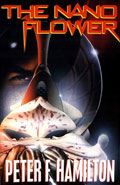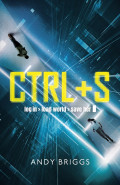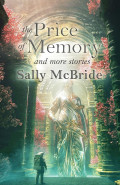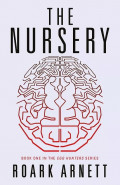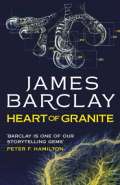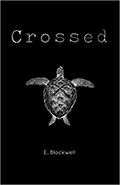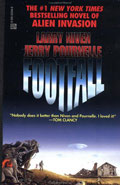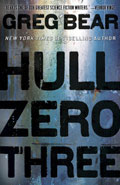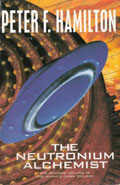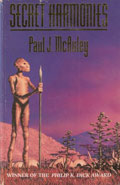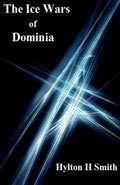Foundation
By Isaac Asimov

- Foundation
-
Author: Isaac Asimov
- Series: Foundation Series
-
Publisher: Granada
- ISBN: 9780590000000
- Published: 1951
- Pages: 240
- Format reviewed: Paperback
- Review date: 18/07/2012
- Language: English
- Age Range: N/A
- Forward the Foundation
- Foundation
- Foundation and Earth
- Foundation and Empire
- Foundations Edge
- Prelude to Foundation
- Second Foundation
The Earth is an all but forgotten planet in the footnotes of mankind's history, a race who are now spread throughout the Milky Way as part of the vast Galactic Empire. An Dominion that looks after a quintillion souls and one that is becoming crippled by it's very size and complexity. A whole planet is assigned to administer this boundless juggernaut but that also represents a serious weak point that could be vulnerable to an attack or breakdown.
One man who is sure of a future collapse is Hari Seldon, a psychohistorian and mathematician who can scientifically predict the future and knows a new Dark age of mankind is scheduled to happen in about 500 years time. Knowing the inevitable he looks to minimise the length of this dark age by saving the complete knowledge of the human race in an all encompassing Encyclopedia Galactica, a project itself that will take life-times to achieve.
But how will he ensure that his work continues after he's gone?
Foundation was originally written as five short stories printed in Astounding Magazine between 1942 and 1951. They were then compiled and published as a book that formed a single coherent plot. It includes the short story "The Mule" which won a retrospective Hugo award in 1996 - awarded for the year it was published (1946) - while the series also holds the distinction of winning the only Hugo ever awarded for "Best All-Time Series".
It's been so long since I first read this book that you could consider it a fresh perspective rather than a re-read. It has been suggested by many (including my youngest brother) that the best way of reading Asimov's collected works within the "Foundation Universe" is to start with the "Robot" and then "Empire" series as these are set before the events of the "Foundation" series. This does make a great deal of sense but since I don't have a complete collection of these I thought I would go ahead and enjoy Foundation anyway (that is unfortunately about as far as my rebellious instincts propel me these days).
There are two major ideas explored within the novel - along with a number of minor ones, which at the time of writing were fresh, unique and which some even now still seem to resonate with the reader to a certain extent.
The first of these is that the entire galaxy will be populated by mankind - a vision of the milky way that is presented by Asimov as completely devoid of aliens; meaning that the human race and the evolution of intelligent life is in fact unique (as still maintained by some religions) to the planet earth. This is probably the most out-of-date idea in the novel, the evidence of life elsewhere becomes more and more compelling as time goes one and as I write this NASA have just confirmed that the "building blocks" of life are indeed evident on our neighbour Mars.
The other big idea is that human behaviour on a large scale can be predicted by mathematical algorithms (known as psychohistory), a theory that even after all the advances in technology over the last 60 years is still a far future science fiction concept - we still have a great deal of trouble predicting the weather!. Religion and politics also play a part and I was reminded of the quote by Arthur C Clarke "Any sufficiently advanced technology is indistinguishable from magic" - I loved the idea of using religion as a survival mechanism.
I think it would be fair to say that characterisation was never Asimov's strong point (although he still does a damn site better than some), he was one of the big ideas people of science fiction and it's these very ideas, grand scope of the stories and how these are played out that contain the real magic. There is also the fact that this book is essentially 5 short stories - which means that there is much less time to build back story and character. There is also the inherent issue of different viewpoints from different protagonists set at different points in time. This forces the reader to re-adjust their perceptions - although the second and third stories do feature the same characters.
Personally I don't see this structure as an issue, the stories are connected well enough that the reader should never get lost and the episodic nature makes a nice break between the different events. This is also strengthened by the common theme and the intelligent design that see's each story as a different point in the creation of this foundation - all of which were forseen by Hari Seldon's equations.
The ultimate question has to be "Is it still any good more than 60 years after it was written?", I would have to say absolutely - while there are a few references to antiquated technology (such as "microfilm" and "valves") and the style is slightly reminiscient of the era it was written in - which includes a distinct lack of the fairer sex - it also has a timeless quality about it mainly thanks to those big ideas.
Foundation is a classic piece of science fiction that still resonates with a powerful vision today as it did all those years ago.
Written on 18th July 2012 by Ant .
